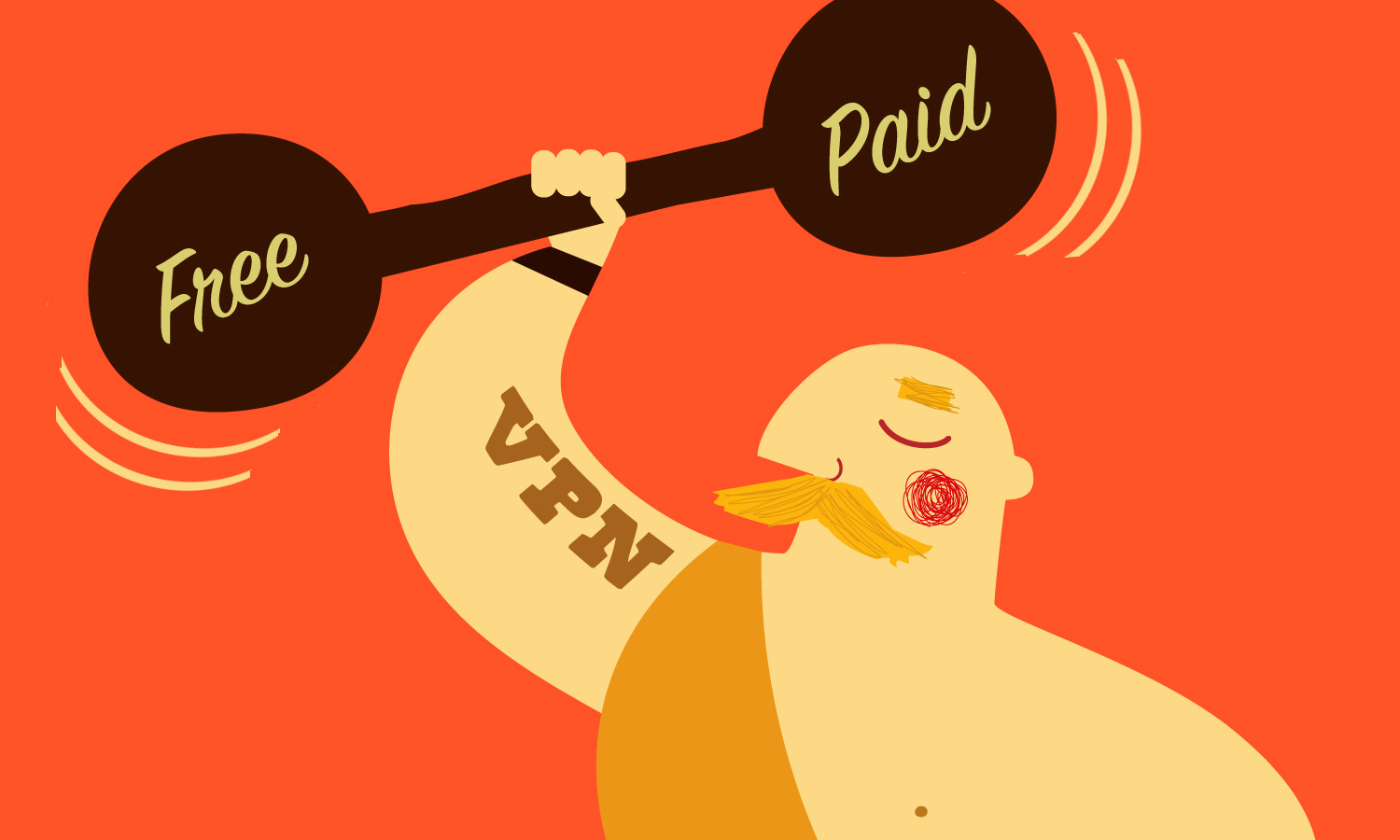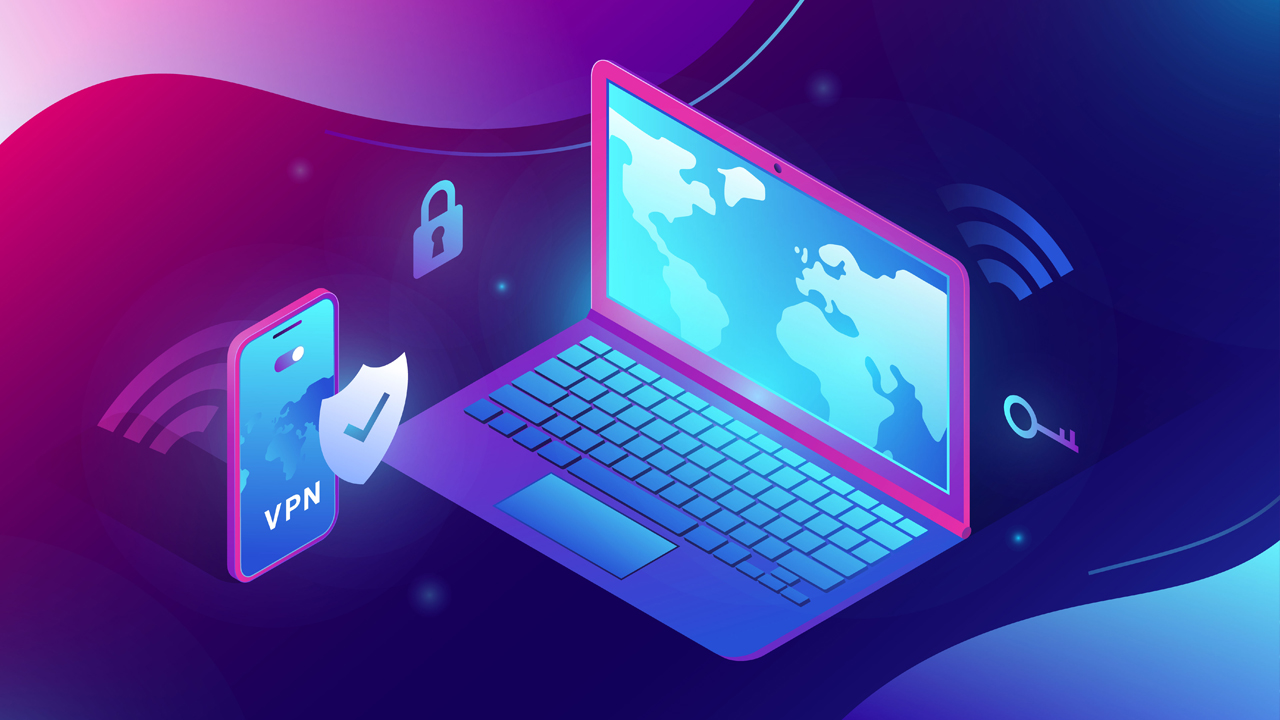Free vs. paid VPNs: which should you choose
Can a free service really deliver the goods?

Here at Tom’s Guide our expert editors are committed to bringing you the best news, reviews and guides to help you stay informed and ahead of the curve!
You are now subscribed
Your newsletter sign-up was successful
Want to add more newsletters?

Daily (Mon-Sun)
Tom's Guide Daily
Sign up to get the latest updates on all of your favorite content! From cutting-edge tech news and the hottest streaming buzz to unbeatable deals on the best products and in-depth reviews, we’ve got you covered.

Weekly on Thursday
Tom's AI Guide
Be AI savvy with your weekly newsletter summing up all the biggest AI news you need to know. Plus, analysis from our AI editor and tips on how to use the latest AI tools!

Weekly on Friday
Tom's iGuide
Unlock the vast world of Apple news straight to your inbox. With coverage on everything from exciting product launches to essential software updates, this is your go-to source for the latest updates on all the best Apple content.

Weekly on Monday
Tom's Streaming Guide
Our weekly newsletter is expertly crafted to immerse you in the world of streaming. Stay updated on the latest releases and our top recommendations across your favorite streaming platforms.
Join the club
Get full access to premium articles, exclusive features and a growing list of member rewards.
More people than ever are looking for the best VPN services, and why wouldn't they? These are privacy tools that encrypt your online traffic and hide your IP address, safeguarding you from data collection and government surveillance that are seemingly increasing at breakneck pace.
Now, a quick search through the Google Play Store or the Apple App Store will bring up a lot of free VPN options. As is human nature, free always looks more attractive. However, in the VPN world, you really get what you pay for. There's no hiding that free services are limited, but this doesn't mean that using a free VPN is never a good idea.
What are the pros and cons of free versus paid VPNs? Are premium plans always better? Do you have to spend a significant sum if you need the benefits of a top-notch VPN? I'll answer all these questions here, as well as run down all the key differences between free and paid VPNs, including privacy and security, general quality of service, and all-important streaming performance.
Pricing
Quite easily the biggest draw of free software is that it doesn't cost anything. While free versions from reputed providers such as Proton VPN Free and PrivadoVPN Free can be good enough for basic privacy and protection on the internet, even the best free options (which are often stripped-down versions of their paid counterparts) are limited—think sluggish speeds, limited bandwidth, fewer server locations, and more.
However, this doesn’t mean that you’ll have to break the bank for online anonymity. Good cheap VPNs can cost as little as $2 a month and still come with a fully-fledged feature set, including obfuscation, built-in malware and ad blockers, and split tunneling—in addition to rock-solid basics such as a kill switch and proven no-logs policy.
Even better, paid-for VPNs also come with generous, often month-long money-back guarantees, which allow you to take a risk-free trial of the service before committing. In the case that it’s not for you, you can cancel the subscription and then try another one risk-free, too!

Security
Paid VPNs spend a lot of time and money developing foolproof security architectures and features, including an intuitive and reliable kill switch, leak protection, and more. They also use strong AES 256-bit encryption and support the most secure tunneling protocols, including WireGuard and OpenVPN.
While this may also be true for free ones, especially those that are meant to offer a glimpse of what their paid versions are like, some may only have 128-bit encryption or worse. Furthermore, some of them operate as P2P networks—meaning they route your internet traffic through another user’s device and someone else’s data through yours. This is a huge security risk, as it may open you up to malware and DNS attacks.
Even worse, some unscrupulous free apps are actually Trojan horses for malicious software. This means downloading them can infect your device with malware, and even allow hackers to steal your private information.
If you’re convinced that your VPN usage is going to be light and you’ll be able to make do with a free product, I’d highly recommend opting for one on our list of the best free VPN providers—they’ve all been vetted first-hand by Tom’s Guide experts. They might be limited in their functionality, but you can rest assured that they will keep your data and your device safe.
Quality of service and extent of features
Here's the thing: the best-case scenario with free software is that is does not store or sell your data, and actually anonymizes you on the internet. It's almost unfair to expect them to match the extent of the feature sets, usability, and performance of premium services—that's not what they're built for in the first place.
Free services will give you access to very few servers. For example, as compared to its paid version which comes with 5,200+ servers in 91 countries, Proton VPN’s free plan (one of the best in the industry) allows access to just 3 server locations—and you can't even pick which one you use.
While fewer servers won’t impact your online privacy, it can result in overcrowded servers and abysmal speeds. So, if activities such as gaming, streaming, or torrenting are your mainstays, this will pose a massive problem. Also, since you can’t connect to a location of your choice—or have a lot of countries to connect to—travelers will find little to no value in free products.
Another limitation is that they’ll hardly ever cover more than just a single device. On the other hand, premium services, even on their most basic plans, usually come with at least five simultaneous connections. Then there are also providers such as Surfshark and Private Internet Access (both among the cheapest in the industry, by the way) that can cover an unlimited number of devices on a single subscription, making them ideal for large households with tons of devices.
The entire user experience overall may also be poles apart. Since free products have to make money from somewhere, they can drown you in pesky ads or send constant notifications to get you to upgrade to the paid version. Not only is this not the case with premium VPNs, but they also offer quick customer support as well as an in-depth knowledge hub that will help you out in case you face any issues.
Thankfully, the free services I recommend don't do this, but many others do.

Streaming
Barely any free providers are up to scratch when it comes to unblocking foreign content. Firstly, there's no quality option that offers servers in a wide range of countries. Secondly, the ability to unblock streaming sites is almost always kept back for the paid version of these apps. Together, this means that you can pretty much forget about bypassing geo-restrictions on your favorite streaming services with a free service.
Those that do unblock streaming sites, such as PrivadoVPN and Windscribe, cover only a few sites and come with data limits, so "binge watchers" should stay away—fine for the occasional streamer, though.
If you’re a streaming head who wants access to content all over the world, irrespective of whether that’s the Aussie 9Now or hard-to-crack locations like Netflix Japan, a paid-for VPN is the obvious choice.
The best streaming VPNs spoof your location and trick the streaming service into thinking you're in a different location (where its content is available) than you really are (where its content might be blocked or different to what's available abroad). This means you can watch whatever you want, wherever you want.
User privacy
This is an important one. A lot of free services—but mostly those that aren’t "freemium" editions of paid versions—may log your activities, keeping track of what you do and where you go online when you're connected. Then they will sell this information to advertisers and data brokers to turn in a profit.
Now, paid services make money through subscription fees, so their model involves offering top-notch service to ensure customer trust. They invest their resources in bolstering user privacy through clear-cut and verified no-logging policies and obfuscated servers.
This is why I always recommend free versions of paid products above those that only offer a free VPN. While you'll have restrictions, you can trust the privacy of these more since the paid versions are solid.
Free vs paid VPNs: bottom line
All in all, free or freemium VPNs make sense for users who are not looking for anything more than basic (and ocassional) privacy and security on the internet. At any point if there’s a dedicated use case, such as streaming, gaming, traveling, or torrenting, or if you're someone who likes to browse with the VPN on at all times, that’s when switching to a paid service becomes necessary.
That said, the fact that a lot of excellent paid-for VPNs today are very budget-friendly makes them a much better choice than free tiers, who are limited at their best and outright unsafe at their worst—even more so when premium plans come with extra security tools and the ability to protect your entire family, making them a comprehensive security kit and a one-stop solution for all things cybersecurity and privacy.

Get instant access to breaking news, the hottest reviews, great deals and helpful tips.

Krishi is a VPN writer covering buying guides, how-to's, and other cybersecurity content here at Tom's Guide. His expertise lies in reviewing products and software, from VPNs, online browsers, and antivirus solutions to smartphones and laptops. As a tech fanatic, Krishi also loves writing about the latest happenings in the world of cybersecurity, AI, and software.
 Club Benefits
Club Benefits










